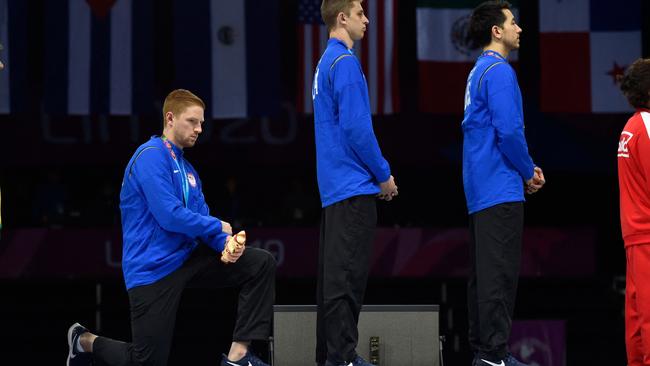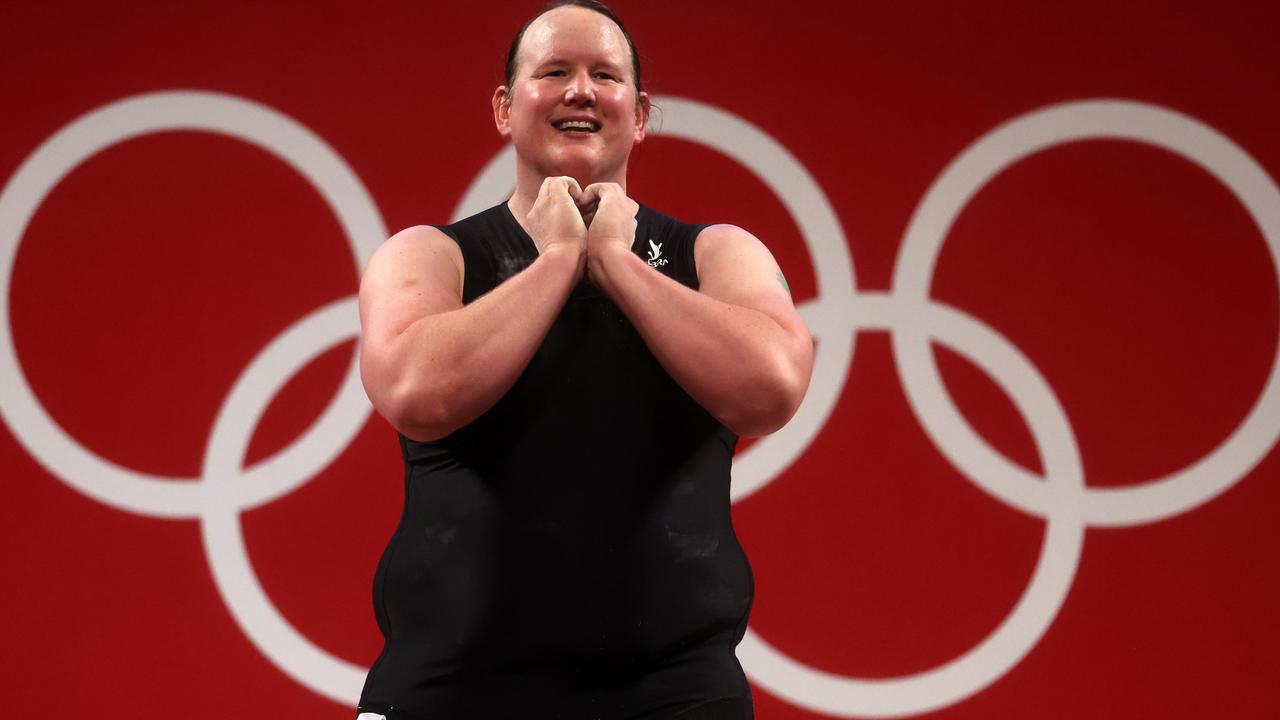Clenched fists and taking a knee allowed at US Games trials
The US Olympic and Paralympic Committee has said athletes competing at Games trials will be free to raise their fist or kneel during the national anthem.

The US Olympic and Paralympic Committee has said athletes competing at Olympic trials will be free to raise their fist or kneel during the national anthem.
In a new policy directive laying out the rules for permitted protests by US athletes, the USOPC said competitors could use one of a range of gestures to demonstrate for racial and social justice.
Protests allowed included kneeling on the medal podium or during the US national anthem, raising a fist at the podium or start line, and wearing a hat or face mask with phrases such as “Black Lives Matter”, “Trans Lives Matter” or words like “equality” or “justice”.
The new USOPC policy is a striking departure from previous rules, which strictly forbid any kind of protests by athletes.
US Olympic chiefs stressed the new guidelines only applied to upcoming Olympic trials events.
Separate rules about protests permitted at this year’s Tokyo Olympics would be released once the International Olympic Committee and International Paralympic Committee have formulated policies allowed at the games.
The USOPC revised its policies in the wake of protests that swept across the US last year following the death of African-American man George Floyd in police custody in Minneapolis.
The IOC’s Rule 50 strictly forbids any kind of protests by athletes at the Olympics, but US athletes and international athlete associations have increasingly challenged those rules.
Olympic officials have come down hard on athlete protesters, infamously expelling US athletes John Carlos and Tommie Smith from the 1968 Mexico City Olympics for their iconic “Black Power” salutes.
In January last year, the IOC issued an updated set of guidelines regarding athlete activism, outlawing any kind of demonstration on the medal podium or field of play. The ban included displays of political messaging, including signs or armbands, hand gestures or kneeling or a refusal to follow the protocol of medal ceremonies.
The enhanced regulations followed incidents at the 2019 Pan American Games, where US hammer thrower Gwen Berry and fencer Race Imboden protested on the medal podium.
Berry raised a clenched fist salute after winning gold in her event. Imboden knelt on the podium after winning a bronze.
Both athletes were subsequently reprimanded by the USOPC, given probation for 12 months and warned that any repeat could face harsher punishment.
The USOPC’s new guidelines were drawn up following recommendations from the body’s Council on Racial and Social Justice.
The new US guidelines also detail criteria for protests that will be deemed impermissible, stating that any gesture that advocates “against people, their dignity or their rights, including — but not limited to — hate speech, racist propaganda or threatening, abusive or discriminatory remarks, or physical harm to others or to property” will remain forbidden.
AFP


